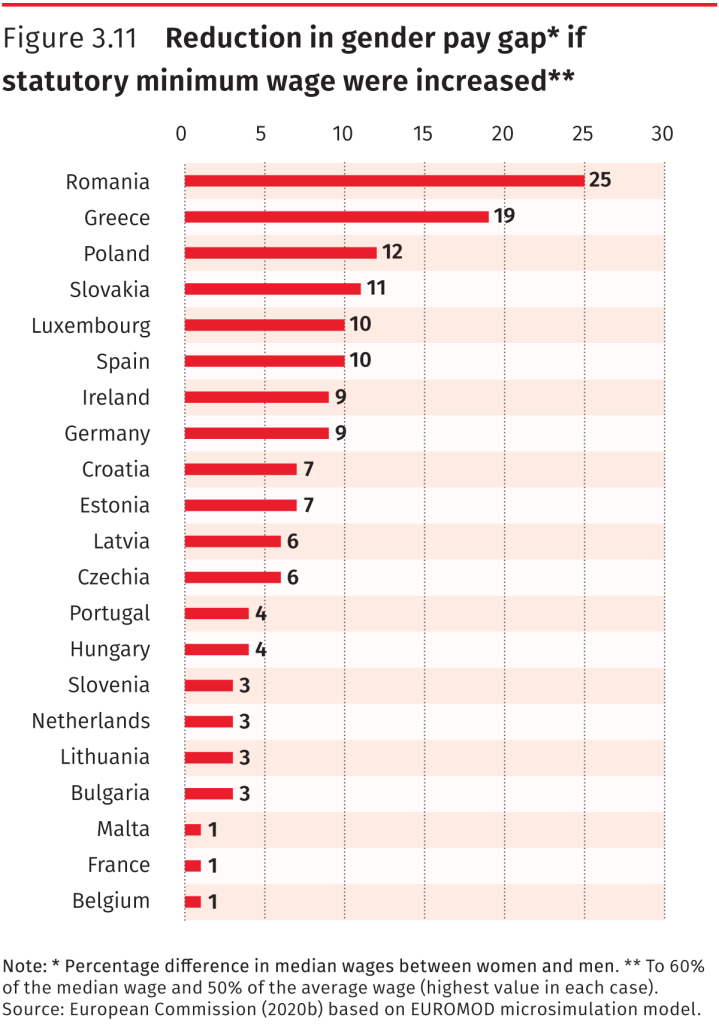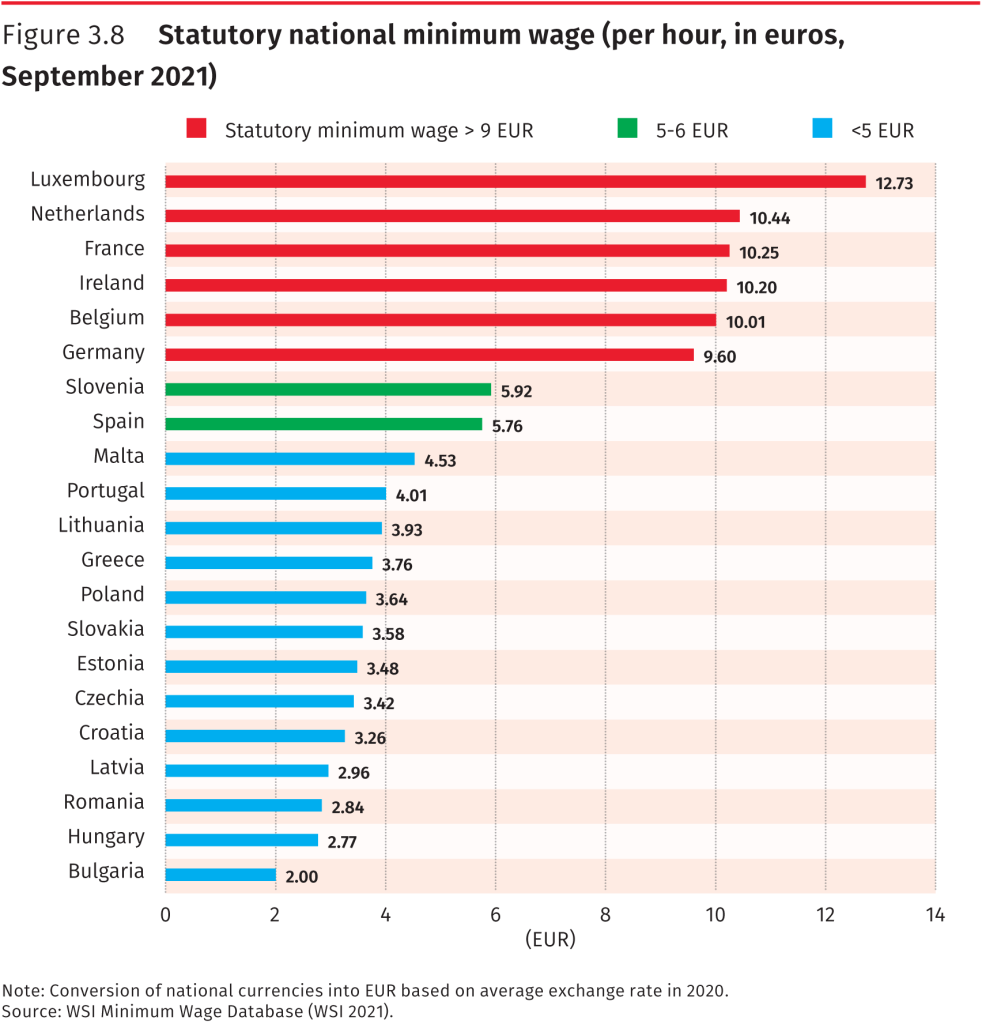The European Trade-Union Institute (ETUI) publishes a report on inequality in Europe: The Benchmarking Working Europe 2021 study suggests that inequality in Europe continues to rise. The EU Commission proposes a directive on adequate minimum wages and collective bargaining. This is supposed to counteract inequality. 25 million people would benefit directly.
25 million Europeans work full time and still live below the poverty line. After deducting rent and fixed costs, there is usually not enough left over from the wage to live decently. An accident, illness or an unexpected bill quickly become an existential threat. The Corona pandemic further exacerbates this inequality. Half of the 25 million fall to Germany (6.8), Spain (4.1) and Poland (4.0). An increase in the minimum wage would lift 25 million people out of poverty in Europe.
Minimum wage too low in almost all EU countries
In 21 out of 27 EU countries there is a minimum wage: “In the majority, however, it is too low in comparison with the respective average salaries and the cost of living”, according to the EU Commission. Too low to live adequately—despite working. In Luxembourg, it is the highest (12.73), in Bulgaria the lowest (2.00). In almost half of all EU states, it is below 5.00.

However, the absolute level of the respective minimum wage says relatively little about the financial situation of the recipients. Therefore, the EU Commission calls for a mandatory wage distribution approach that determines the level of the respective minimum wage.
The “double decency threshold”: minimum wage should be 50% of average income and 60% of median income
The so-called “double decency threshold” is internationally regarded as a guideline when it comes to setting an appropriate minimum wage. According to this, a minimum wage should be 50% of the average income and 60% of the median income. The median income divides the salaries of a society in the middle. It is the boundary between the top 50% and the bottom 50%.
Not a single EU state met this “double decency threshold” in 2020. “On the contrary, current minimum wages are far below the double decency threshold in the vast majority of EU countries,” says Torsten Müller, one of the guest authors of the ETUI’s Benchmarking Working Europe 2021 study.
Higher minimum wage reduces wage inequality between women and men and contributes to equality for all
An adequate minimum wage improves the overall wage structure because it influences the development of the other wage groups. Moreover, since there are still more women than men, more migrants than natives and more young than old working in the low-wage sector, it contributes to overall equality and social fairness. A minimum wage equal to the “double decency threshold” would suddenly improve the lives of 25 million people. In Greece alone, the wage gap between men and women would be reduced by 19%, in Romania by 25% and in Poland by 12%.

EU needs more collective agreements: A minimum wage with “double decency threshold” is not enough
In countries like Portugal, Bulgaria and Romania, average incomes and median incomes are generally too low. Adjusting the minimum wage to these, is not enough there. Therefore, it is important to raise the general wage structure in Europe. Collective agreements or collective wage agreements are needed for this. These strengthen the position of employees, reduce wage inequality and counteract low-wage sectors.
“Countries with high collective bargaining coverage tend to have much lower wage inequality and fewer low-wage sectors.” Say Torsten Müller, Kurt Vandaele and Wouter Zwysen in a guest contribution to the Benchmarking Working Europe 2021 study.
In 16 of the 27 EU countries, collective bargaining coverage is below the 70% required by the EU Commission. Countries such as Austria and Italy, on the other hand, are exemplary. In Austria, for example, all collective agreements signed by the Chamber of Commerce apply to the relevant sectors.
Corona pandemic further exacerbates inequality in Europe, says ETUI
“It has almost become a cliché to say that the COVID-19 pandemic has exacerbated already existing inequalities while creating new ones.” So Philippe Pochet, Luca Visentini and Nicola Countouris, authors of the Benchmark Working Europe study by the European Trade-Union Institute (ETUI).
Women, young people and migrants are most affected by the pandemic. They increasingly work in sectors with precarious working conditions and poor occupational health and safety. In most cases, these are the first people to lose their jobs. They choose between job loss or health risks. They cannot – like many better qualified people – work from home.
Inequality is the result of a neoliberal economic model
The Corona pandemic reinforces already existing social inequalities, but it is not their sole cause. “The inequality is the result of an economic model that has distributed less and less wealth to the lower strata of society over the last three decades, while accumulating more and more at the top,” the ETUI study says. The unequal distribution of wealth, power, and participation is a structural problem.
